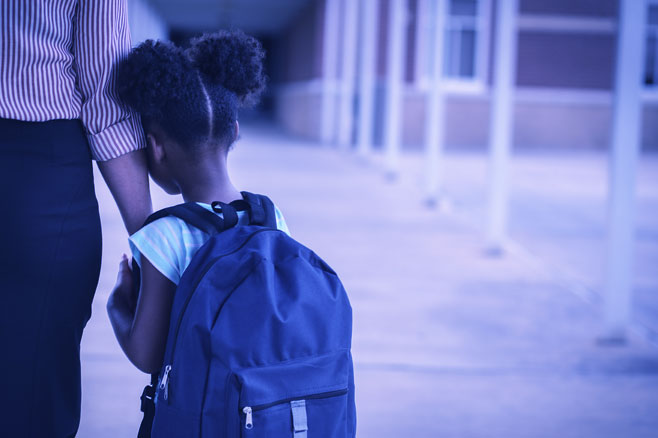During this time of uncertainty and potentially traumatic consequence, Starr Commonwealth is committed to supporting teachers and other caring adults in whatever way we can. To best assist educators poised to provide the nurturing foundation our children need, we would like to offer our online course Trauma-Informed Resilient Schools free of charge to anyone interested in the underlying traumatic roots of behavior, as well as the key components necessary to allow students to flourish. Visit starr.org/tirs for more details.
In times of crisis, it is critical that parents, teachers, and all caring adults are prepared to serve as sturdy, nurturing foundations that children can lean on for love and guidance. Regardless of the nature of the traumatic event, there are some universal factors we must always consider that are at play with how kids perceive events, and how those perceptions may impact their reactions and behavior.
Children fear many things, but illness, going to the doctor/hospital themselves, or the illness or death of a parent or loved one are among the top of those fears. You may not hear a child verbalize worry or fear, but they may show it through changes in sleep, eating, or behavior – so if there are changes, explore what might be causing those changes.
How we can all help our children:
- The most important thing a parent/adult can do is to remain calm themselves. Children will mirror the reactions of adults. So, pay attention to what you say and do! They will pick up on changes in your tone of voice and non-verbal body language.
- Answer their questions (even if they are repetitive and don’t make sense to you). Answer in a way that is direct and calm.
- Give children the facts in a developmentally appropriate way. If you do not, they will imagine something on their own that may be far worse as to what the crisis really is. Try not to engage in gossip or conversations sparked from social media panic.
- During a pandemic, remember these responses:
- “Yes, we do need to be careful about washing our hands and staying away from others who may be sick.”
- “The likelihood of one of us getting the virus is not high – but if we do, doctors will take care of us.”
- [Concerning COVID-19] “It seems scary, but it is very rare to die from this virus.”
- “It is okay and normal to be worried, scared about this—of course you are. We all are, and that is why we are doing everything we can to keep you safe.”
- Above all else, this is an opportunity for lots of quality time. Make new connections with your children or students (if possible). Play! Lighten up expectations (behavior, communication, academics, etc.) when children are worried or scared.
The Traumatic Impact of School Cancellation
Above and beyond the panic and trauma that comes from pandemics, we’re facing an undetermined amount of time when school, and consequently the only structure and sense of safety for many kids across the nation, is taken away. For many, school provides safety, food, routine, socialization, connections, and stimulation. Any change from routine is stressful. And, if parents now have to look for childcare or are worried about money/income, etc., stress levels go up. When stress levels go up in parents, behavior changes usually occur in children.
So what can educators do to help kids feel safe during this time? It really depends on what communication channels you have available with your students, and much of that is certainly being worked on in each district. Trust and support your administrations, and make clear that everyone is unified in their efforts to be there for each child. Beyond that, anything you can do to make a loving and supportive connection to your students while they are at home can be what they need in a time of uncertainty.
When it’s time to return to school, teachers must keep in mind that this shift back to the school routine can be as difficult for some as the cancellation was for others. Every child is different in their reactions to the change of schedule. Teachers must stay aware of what’s happening at home, and be mindful of what’s happening to each child.
What the world is enduring right now is of universal concern. This will be stressful for even non-traumatized parents/children. For children and parents who already experience ongoing toxic stress, this will be an additional stressor on their already very worried minds/bodies. Remember, the most important thing we can do for our kids is to simply be that loving adult who is there to support and comfort them.


